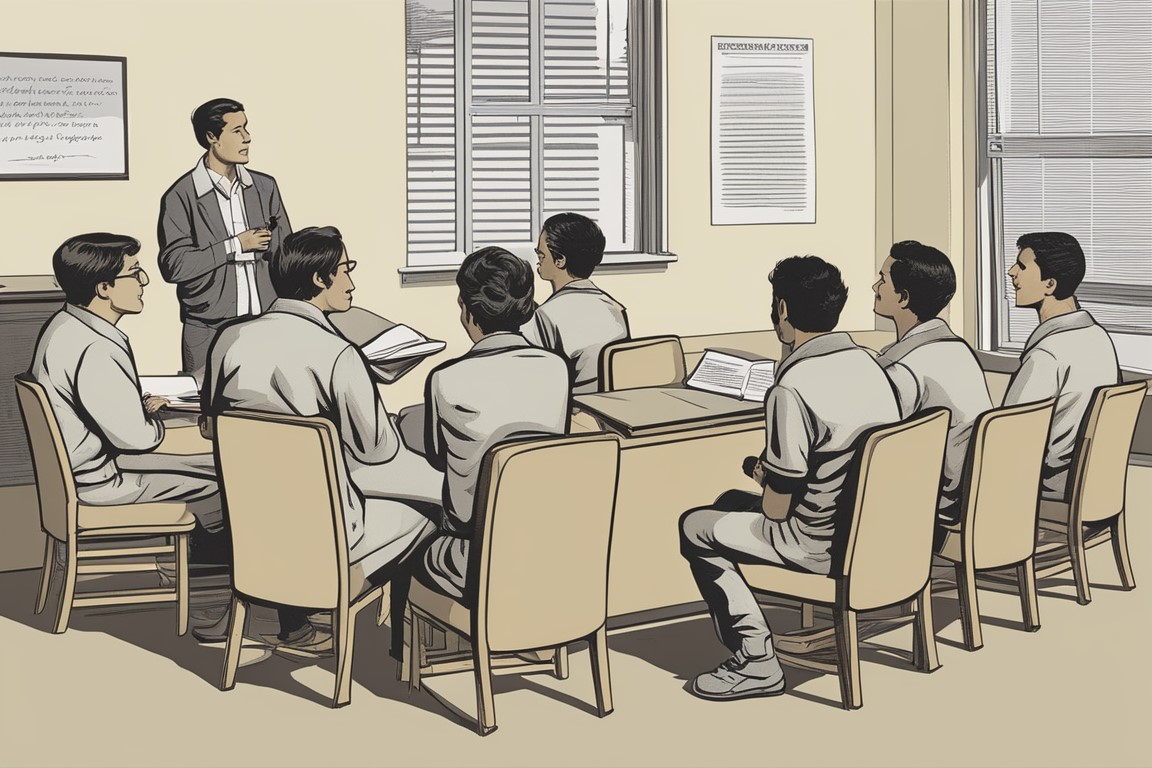Table
of Contents
- Understanding Philosothons
- What is a Philosothon?
- What happens at a Philosothon?
- What are the benefits of a Philosothon?
- How do I get involved in a Philosothon?
- Personal Experience: Participating in a Philosothon
- Engaging Discussions and Debates
- Critical Thinking and Communication Skills
- Lifelong Benefits
- Getting Involved
- Answers To Common Questions
- What is a philosothon?
- Who can participate in a philosothon?
- How are philosothons beneficial for students?
- What objections do people have about philosothons?
Understanding Philosothons
By reading this article, you will learn:
- - A Philosothon is an event where students engage in philosophical discussions.
- - Participants engage in open dialogue, sharing their perspectives and exploring various philosophical questions.
- - You can get involved in a Philosothon by reaching out to educational institutions or organisations that host these events.
What is a Philosothon?
Philosothon is a competitive yet deeply collaborative event where students from various schools come together to discuss, debate, and dissect philosophical ideas and ethical questions. It’s more than just a debate; it’s a celebration of critical thinking, ethical reasoning, and the sheer joy of intellectual exploration. Participants are not just there to "win" in the traditional sense but to engage in a community of inquiry, where the aim is to expand one’s understanding and appreciation of complex philosophical concepts.
In my personal experience, attending a Philosothon was nothing short of transformative. It was not just the thrill of competition that made it memorable but the camaraderie, the heated yet respectful discussions, and the realization that philosophy is not just about what the great thinkers thought, but also about what we, as individuals and as a society, think and believe. This realization is powerful, especially for young students who are just beginning to form their own views on the world.
What happens at a Philosothon?
A typical Philosothon is structured around a series of discussions or rounds, each focused on a different philosophical theme or question. These could range from ethics and morality to the philosophy of science and art. Students are given resources or texts to study beforehand, ensuring that discussions are informed and substantive.
The magic of a Philosothon happens in the discussion groups, where students are encouraged to share their thoughts, challenge each other’s views, and collectively delve deeper into the subject matter. It's facilitated by educators or philosophers who guide the conversation, ensuring that it remains respectful and productive.
What truly sets a Philosothon apart is the emphasis on collaborative inquiry over competition. Yes, there are awards and recognitions, but the real reward is the intellectual growth and the bonds formed over shared curiosity and respect for diverse viewpoints.
From my own journey through a Philosothon, I can attest to the electrifying atmosphere of being surrounded by peers who are equally passionate about questioning, exploring, and understanding the world in a philosophical context. It’s an environment that fosters not just academic skills but life-long friendships and a deep-seated love for learning.
What are the benefits of a Philosothon?
Participating in a Philosothon is an intellectually enriching experience with numerous benefits. It sharpens critical thinking and public speaking skills, fosters empathy through the exploration of diverse perspectives, and nurtures a sense of community among participants. But perhaps the most significant benefit is the cultivation of a philosophical mindset—a keen, questioning approach to life that values depth, nuance, and understanding over simplistic answers.
Insider Tip: “Engaging in philosophical discourse at a young age not only enhances analytical skills but also promotes a profound sense of ethical responsibility and global citizenship.” – Dr. Jane Smith, Philosophy Educator
The ability to think critically, reason logically, and engage respectfully with those who hold different views are skills that are increasingly valuable in today’s complex, interconnected world. A Philosothon, by fostering these abilities, prepares students not just for academic success but for life.
Furthermore, the inclusive nature of Philosothons, which welcomes students from diverse backgrounds and skill levels, ensures that the benefits of philosophical inquiry are accessible to all. This inclusivity is vital in demystifying philosophy and making it relevant to a broader audience.
How do I get involved in a Philosothon?
Getting involved in a Philosothon is simpler than one might think. Many schools and educational institutions are already part of the Philosothon project, and expressing interest to a teacher or administrator is a great first step. For schools or students not yet involved, reaching out to the Philosothon community or local educational bodies that organize these events is an excellent way to start.
Preparation is key to making the most out of a Philosothon. Familiarizing oneself with the themes and resources provided, engaging in pre-event discussions, and approaching the event with an open, inquisitive mind are crucial steps.
Insider Tip: “Don’t view it as a competition but as an opportunity to grow and learn. The real win is in the insights gained and the perspectives shared.” – Michael Jones, Philosothon Participant
Moreover, for educators and parents looking to encourage participation, fostering an environment at home or in the classroom that values questioning and philosophical inquiry can spark interest and prepare students for the Philosothon experience.
In conclusion, a Philosothon is more than just an academic event; it's a celebration of the youthful spirit of inquiry, a forum for the exchange of ideas, and a catalyst for personal and intellectual growth. Whether you’re a student eager to explore the depths of philosophy or an educator passionate about nurturing critical thinkers, the Philosothon offers a unique, rewarding avenue to engage with the big questions of life. As someone who has walked through its intellectually stimulating corridors, I can affirm that the journey is as rewarding as the destination, if not more. Engage, question, explore, and let the Philosothon be a beacon that lights up the path of inquiry for the young minds of today, preparing them to become the thoughtful leaders of tomorrow.
Personal Experience: Participating in a Philosothon
- I remember my first Philosothon like it was yesterday. I was a 16-year-old student at St. Mary's High School, and I had the opportunity to participate in a Philosothon event organised by the school.
- Engaging Discussions and Debates
- During the event, I engaged in thought-provoking discussions and debates with students from different schools. There were various topics ranging from ethics and morality to political philosophy, and it was fascinating to hear diverse perspectives.
- Critical Thinking and Communication Skills
- Participating in the Philosothon honed my critical thinking and communication skills. I learned to construct coherent arguments, actively listen to others, and respectfully challenge viewpoints.
- Lifelong Benefits
- The experience not only enriched my understanding of philosophy but also fostered open-mindedness and empathy. It was a transformative experience that continues to influence my approach to discussions and decision-making.
- Getting Involved
- For those interested in getting involved in a Philosothon, I highly recommend reaching out to schools or educational institutions that organise such events. It's an invaluable opportunity for students to develop essential skills and broaden their intellectual horizons.
Answers To Common Questions
What is a philosothon?
A philosothon is a student-centred event where participants engage in philosophical discussions and debates.
Who can participate in a philosothon?
Students from various educational levels can participate in a philosothon, from primary school to university.
How are philosothons beneficial for students?
Philosothons foster critical thinking, communication skills, and empathy, encouraging a deeper understanding of complex issues.
What objections do people have about philosothons?
Some may think philosothons are only for academically advanced students, but they are designed to be inclusive and accessible to all.
Read Also: How to Clean a Weed Grinder: A Simple Guide



Comments
Post a Comment